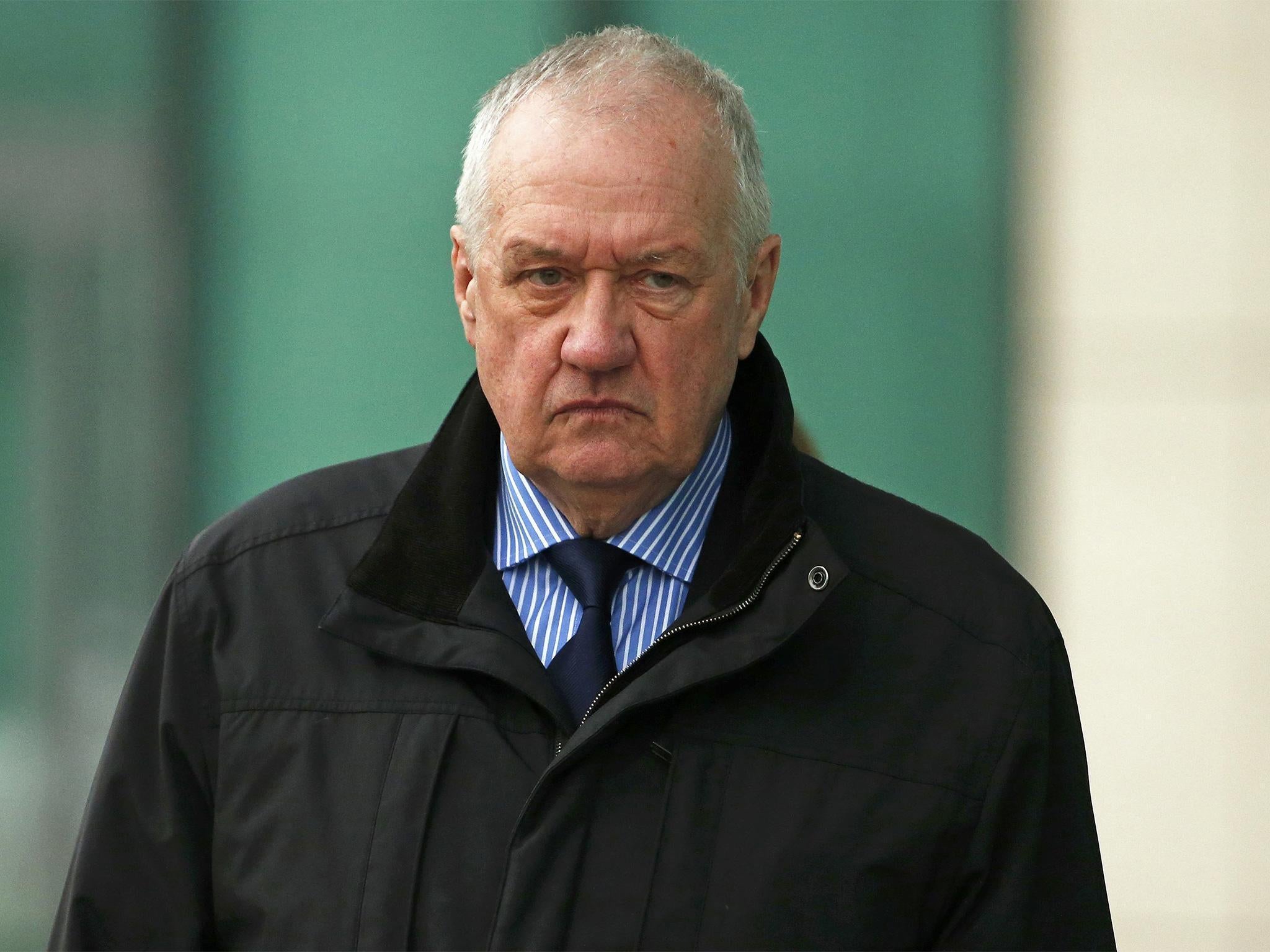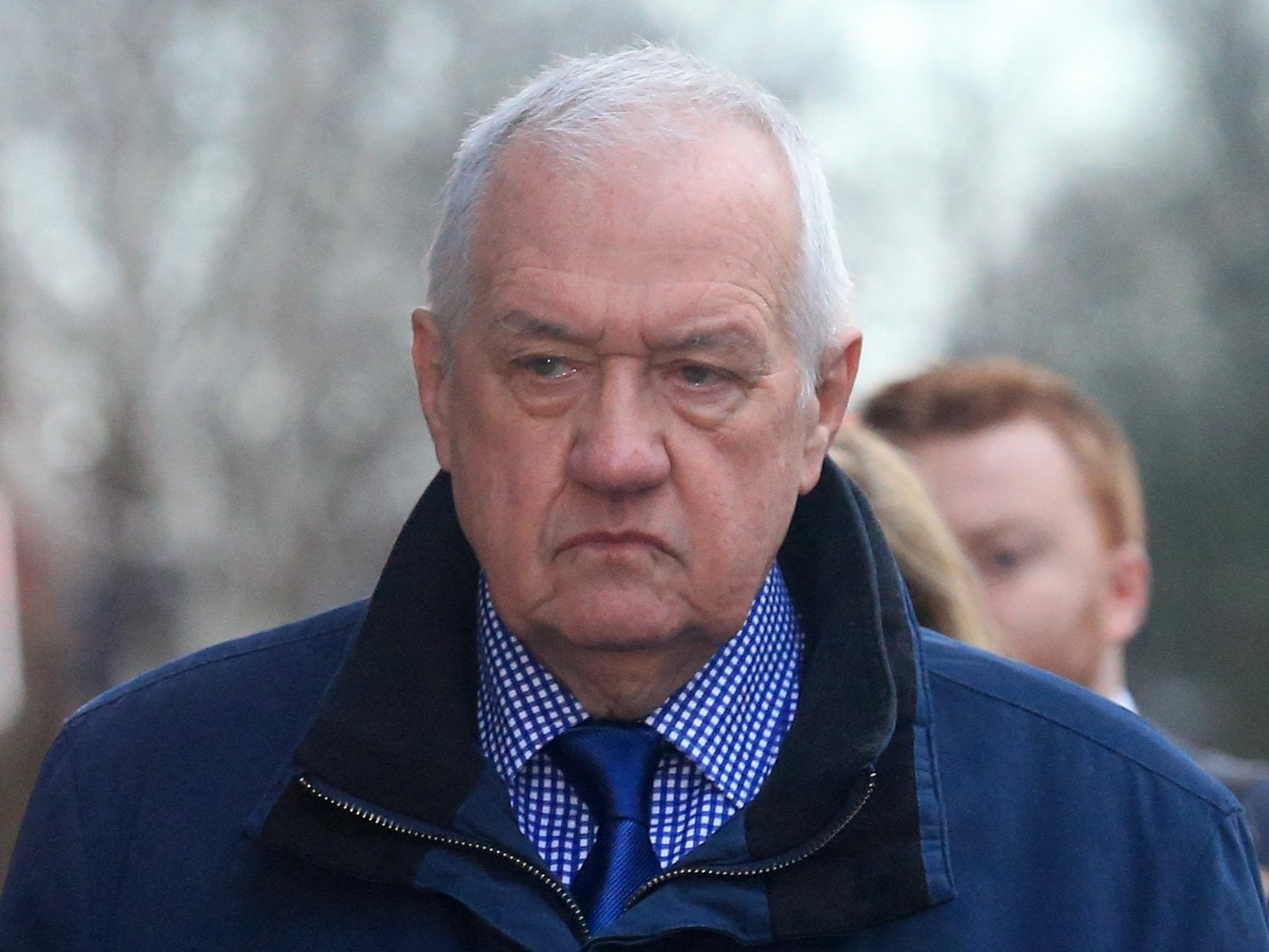Hillsborough trial: David Duckenfield 'unfairly singled out' for manslaughter prosecution, defence claims
Prosecution says match commander's 'extraordinarily bad' series of failings led to fatal crush

David Duckenfield has been “unfairly singled out” for prosecution over the Hillsborough disaster, his defence lawyer has claimed.
The match commander “was not equipped with special powers to anticipate things that everybody else didn’t,” Benjamin Myers QC told a jury at Preston Crown Court.
He added: “It can hardly be fair to judge Mr Duckenfield by different standards from everyone else.
“The prosecution are blaming him for ... events that can’t be attributed to the fault of any persons in particular.
“What happened on 15 April 1989 was brought about by a combination of factors great and small, some with their roots in events years before and some that emerged in the hours and minutes before disaster struck.”
The prosecution had previously told the court that Mr Duckenfield’s “extraordinarily bad” failings as match commander was a substantial cause of the deaths.
Richard Matthews QC said it “required no hindsight” to realise the risk of a fatal crush in fenced pens at the Leppings Lane end of Hillsborough stadium.
Mr Duckenfield did not consider the consequences of an influx of thousands of Liverpool fans down a tunnel into the already overcrowded pens when he ordered a large gate to be opened to ease a separate crush outside the stadium, the court heard.
Prosecutors said he then failed to take action as the disaster was unfolding, with survivors and witnesses recalling how they shouted at police officers for help, and to be let out, but got no repsonse.
Excerpts of statements from officers were read showing that they were operating without orders from Mr Duckenfield, or the police control box, to try to manage crowds at the Leppings Lane end.
Even as the victims were being crushed to death, police communications played to the court suggested that some officers believed the incident to be a pitch invasion and responded accordingly.
When the match was stopped at 3.05pm, police triggered operation support, which was not a safety operation but a “contingency plan to deal with spontaneous disorder”.
Mr Matthews said: “No matter who else could have done better, done more, done things differently, Mr Duckenfield’s failures continued.
“Each flowed from his own decision making and fell squarely within his personal responsibility as match commander.
“Ultimately Mr Duckenfield failed in the most appalling manner to monitor what was happening in pens three and four, and to prevent or avert the inevitable consequence of the flow of many spectators into the central tunnel, crushing the life out of so many people.”
But speaking later on Thursday, Mr Myers told the jury a combination of factors “came together in catastrophic fashion … and to single out David Duckenfield is artificial and unfair”.
The defence lawyer said that the fencing that contributed to the disaster was common at football stadiums in the 1980s and that safety risks that may seem obvious now “were a fact of life in 1989”.
Mr Myers asked the jury to “keep in mind the danger of hindsight, the historical context and the possible unfairness of applying unreasonable standards to Mr Duckenfield from what is expected for others”.
Mr Myers pointed out that the prosecution has accepted that other people are at fault “but they are not accusing them of gross negligence manslaughter”.
He added: “You may be wondering how it can be fair to single out one man for prosecution when there are so many other people at fault – so are we. Looking back now, there may be things that could be done differently or better, and the same can be said for a good many people.”

Mr Myers said his client believes he was not negligent and “did his best”, and that “bad stadium design, bad planning, some aspects of crowd behaviour, some of police behaviour, and genuine human error” contributed to the disaster.
He reminded the jury that Mr Duckenfield is not representing South Yorkshire Police or any other agency, adding: “Our sympathy for others can never be a reason to convict another for events beyond his control or repsonsiblity.”
Mr Duckenfield, now 74, denies manslaughter by gross negligence of 95 victims.
There can be no prosecution over the death of the 96th victim, Tony Bland, as he died more than a year and a day after his injuries were caused.
Graham Mackrell, Sheffield Wednesday’s former club secretary, denies health and safety offences.
The trial continues.
Read our live coverage below:
Please allow a moment for the live blog to load
Mr Matthews says Mr Duckenfield admitted it was "a mistake not to make sure that he knew the ground in better detail" but had noted the existence of pens and radial gates at the back of the fencing
AHe was unaware which parts of the stadium were fed by turnstiles A – G but agreed that it would have been information which it would have been important he had
Mr Matthews says Mr Duckfiend "claimed not to have recognised the risk of overcrowding that was created by the existence of pens on the Leppings Lane terrace but accepted that it was common sense"
He agreed that capacity monitoring "would have been important for safety reasons" at the inquest
Mr Matthews says that at the inquests, Mr Duckenfield agreed that at 2.30pm he should have tried to find out how many fans had not yet got in and "agreed that it was a mistake not have made such an enquiry"
Mr Matthews said that when asked whether he should have considered the consequences of the decision he made to order the gates opened, Mr Duckenfield "replied that he did not foresee where fans would go when they came in through the opened gates".
He "claimed that his mind had gone blank at that moment and that he had not considered at all the possibility of overcrowding in the pens at this time". Mr Matthews said Mr Duckenfield said that he didn't order the tunnels closed and front gates out of the pens to open
Mr Matthews says it is not necessary to prove that Mr Duckenfield’s order caused Gate C to be opened at 2.52pm but noted that a camera operated in the Police Control Box zoomed in to that location at the time a request was communicated to him
"We know that David Duckenfield acceded to the requests to ‘open the gates’. "
Mr Matthews says Mr Duckenfield previous accepted his decision to open the exit gates resulted in gate C opening at 2.52pm.
"He could have been in no doubt but this would result in a very large numbers of fans entering the ground - that was its entire purpose," the prosecutor adds.
"It was, he said at the Inquest, done to save lives. He should have thought through the consequences of the decision and not to have done so was plainly both a serious failing and something that fell far below the standard of a reasonably competent match commander."
Mr Matthews is taking the jury back through the indictment against Mr Duckenfield, who is listening to the charge against him in court
"There was a serious and obvious risk of death arising from overcrowding and consequent crushing from the arrival of 24,000 people to the Leppings Lane entrance," Mr Matthews says
"That was a clear and present danger throughout the period of the arrival of the fans en masse, and an easily predictable danger from before that time. The risk of crushing to those in the pens from the pressure of fans coming through the tunnel would have been, throughout the time of the failures, obvious to a reasonably careful and competent match commander."
The prosecutors said Mr Duckenfield made "extraordinarily bad" failures in five ways
"Ultimately he failed in the most appalling manner to monitor what was happening in pens 3 and 4 and to prevent or avert the inevitable consequence of the flow of many spectators into the central tunnel, crushing the life out of so many people," he adds.
Mr Matthews is now addressing the two health and safety charges against Graham Mackrell, the former club secretary of Sheffield Wednesday, who had responsiblity for safety
He says "important aspects" of the admission of 24,000 people through Leppings Lane had been changed from the previous year but police were not told
The club planned for 4,465 spectators (the West Stand capacity) to be directed to six turnstiles (11-16) whilst more than twice as many people, 10,100, were to be directed to the remaining seven turnstiles (A-G) for the West Stand terraces and pen 7 on the North West terrace.
Mr Matthews says it meant that as far as David Duckenfield and the police were aware the methods of admission were identical to the previous year
He tells the jury that Mr Mackrell "effectively abdicated his responsibility as safety officer and did nothing to manage the club’s adherence to the important provisions in the Green Guide", failing to take reasonable care over entry arrangements the turnstile through rate and potential overcrowding outside the stadium
